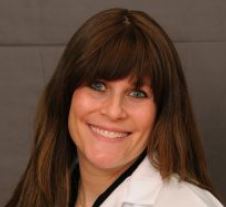Rebecca Sklar, RPA-C with Advanced Dermatology PC, Shares Tips on Giving Older Skin the Care It Needs
STATEN ISLAND, N.Y. (PRWEB) July 08, 2021
Maybe not everything improves with age, but one thing – healthy, vibrant skin – is not something that must be relinquished to younger years. “Senior skin,” notes Rebecca Sklar, a certified registered Physician Associate specializing in dermatology with Advanced Dermatology PC, “needs special care. And if we treat our skin right as we age, healthy, vibrant skin can accompany us into our golden years.”
Our skin starts aging while we are still young. As time passes, a combination of genes, lifestyle, and environment – especially sun – leaves its mark. Wrinkles, uneven tone, and a dulled complexion often join us as we get older.
In addition, older skin becomes thinner and more susceptible to ongoing damage.
“Our understanding of senior skin,” explains Sklar, “has given us the ability to intervene in the processes that ‘age’ our skin and address cumulative loss and damage.”
“Take wrinkles, for example,” continues Sklar. “We start to lose our skin’s collagen support as twenty-somethings, which eventually results in ‘static’ wrinkles. Likewise, over the years, our repeated expressions – smiles and frowns – generate ‘dynamic’ wrinkles. Today, though, we have a range of procedures to stimulate new collagen and limit dynamic wrinkles, giving us a chance to push our skin’s ‘restart’ button.”
Uneven skin tone – ‘age spots’ and ‘spider veins,’ for example, are also typical of senior skin.
“Skin cancer is a serious concern,” elaborates Sklar. “But the sun impacts our skin in a number of ways. Over the years, ultraviolet rays accelerate the breakdown of collagen and can also leave permanent darkened patches and broken blood vessels. Fortunately, as with wrinkles, we have techniques that can address this damage, ‘resurface’ our skin and boost our complexion.”
To help guide seniors in prejuvenation and rejuvenation skin-care choices, Sklar has the following suggestions.
5 Tips to ‘Baby’ and Improve Aging Skin
- Sun protection, now more than ever! “People make the mistake of thinking that it’s too late to start practicing ‘safe sun’ or that they can relax about sun protection when they’re older,” observes Sklar. “Nothing could be further from the truth: adopting careful sun protection ¬– SPF 30, seeking shade and protective clothing – actually can help the skin’s own rejuvenation processes. And taking extra care when we’re older is extra important because seniors, once retired, are often out and about more, getting even more sun exposure and further damage.”
- Go undercover to help smooth and firm: “We have a wide menu of interventions that can jump start our skin’s collagen production,” advises Sklar, “like microdermabrasion, laser treatments, Ulthera ultrasound, and Intensif radiofrequency microneedling. Adding in hyaluronic acid (HA), for example with Collagen PIN microneedle treatments, can give a further boost to firmness, as can HA fillers such as Juvederm, Perlane and Resytlane. For dynamic wrinkles, Botox injections hit an effective ‘pause’ button, and those injections can work in synergy with collagen and HA treatments.”
- Resurface to ‘reset’ skin tone: “Uneven skin tone – including age spots and spider veins – responds well to ‘resurfacing’ treatments like microdermabrasion, chemical peels, and laser treatments. These penetrate below the skin to eliminate clusters of pigment spots and broken blood vessels caused by cumulative sun exposure.”
- Wash less! Moisturize more! “’Babying’ our skin means treating it extra gently,” emphasizes Sklar. “Especially when we’re older and our skin is more delicate, we want to protect it and help it retain moisture: unless sweaty or dirty, cleanse once, nightly, with a non-soap cleanser and warm (not hot!) water. In the morning, a cool-water rinse is enough. After cleansing or rinsing, pat dry gently and apply moisturizer ASAP – while your skin is still damp – to help lock the moisture in.”
- When in doubt, check it out: “Skin cancer is the world’s most common cancer,” notes Sklar, “and it is more likely to develop after years of sun exposure. If there are new growths or skin changes, see your dermatologist for evaluation.”
“As we leave our younger years behind,” concludes Sklar, “we can bring our healthy, vibrant skin along with us.”
Bio: Rebecca Sklar, RPA-C is a certified physician assistant through the National Commission of Certification of Physician Assistants.
Advanced Dermatology P.C.and the Center for Laser and Cosmetic Surgery (New York & New Jersey) is one of the leading dermatology centers in the nation, offering highly experienced physicians in the fields of cosmetic and laser dermatology as well as plastic surgery and state-of-the-art medical technologies. http://www.advanceddermatologypc.com.

